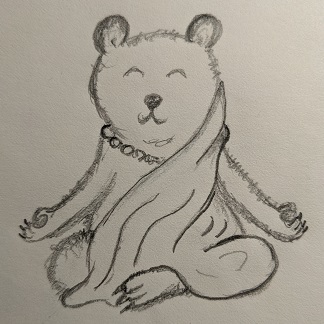On Everyday Acts
Did you know that when you go the store and pick an item off the shelf, choosing among the myriad options on display, you are performing a theatrical act? That you are putting on a little play?
Did you know that everything we do is a performance? Every choice we make and every action we take? It is just as the great bard wrote:
All the world’s a stage,
William Shakespeare, As You Like It, Act 2, Scene 7
And all the men and women merely players;
Let me explain.
In our ordinary state of consciousness, our actions are motivated by our personal agenda and our ego’s need to maintain its identity-image. Our identity-image is a persona that develops over the course of our lives. It is our self-image – “I’m a nice guy” or “I’m a tough guy” for example. It develops with conditioning as our experiences shape our habits of perception and behavior to form who we are as distinct individuals. In other words, we become a character.
Yes, like a character in a play. Do you see where I am going?
The conditioning that forms our character limits us, so that we think and act in specific ways, following a script. Just as a play has a script. The details of our script define who we are in society – our role. Just as each character in a play has a role. Our role determines how we dress, which is like our costume in the play, and what we own, which is like our stage props.
You know what I mean! People live according to their self-image. They dress a certain way and drive a certain car, and have particular beliefs and mannerisms. They fall into a pattern, and to come out of that pattern is difficult – it is very uncomfortable! To change these behavioral patterns would be like denying one’s own self-image.
We refer to these patterns of dressing and acting and so forth as culture, and in our diverse society we even have sub-cultures, groups within the larger population whose identity-image conforms to some model. This enriches our collective lives, and also complicates our politics.
Some people are ostentatious about their self-image, like they are showing it off to those around them, who are the audience of their play. But even if a person is not ostentatious, even if they only want to be left alone and don’t care much how they look to others, even then they are putting on a performance.
For whom, then, you might wonder? Who is the audience for this solitary person, acting alone?
Why they are their own audience, of course! The conditioned ego is performing for itself, making the choices necessary to maintain its self-image. It is always like this with every choice we make, and every action we take; they are affirmations to ourselves of who we are.
Let’s say you are at the store and you are buying your bottle of shampoo, and you have to decide if you will buy the inexpensive generic brand or the costlier designer brand. You make the choice in accord with your self-image. Maybe you are successful and deserve the finer things in life, and certainly you can afford the more expensive option. Or maybe you are sensible and you understand the value of money, and you know the cheaper option works just as well.
You make the choice of either the generic or designer bottle, and so you reinforce your identity-image. Your consumer choice is a little performative act by yourself for yourself: solipsistic theater, as it were. Marketers know this is how consumer behavior works, and they make sure to have different brands at different price points to capture greater market share, even though what is in each bottle is more or less the same.
So our everyday act is an act of theater. This is how we are in our ordinary state of ego-consciousness, and this is not a bad thing per se. We need to reinforce our identity-image and have a stable ego if we wish to function in society, and we should not be ashamed of our limiting conditioning.
I say that everything we do is a performance, because our actions are always witnessed, whether by others, or by ourselves. They always have an audience. And there is always an ultimate witness, which is the unitive consciousness that is the ground of reality.
It is within this unitive consciousness that all of manifestation occurs, the whole world that is the stage on which we perform. It is this unitive consciousness that ultimately is making the choice that we attribute to ourselves, bringing the world into manifestation as it does.
This unitive consciousness is unconditioned; it has complete freedom of choice. But it is very difficult for us to access this freedom of choice, because of the limitations of our conditioning – our fears and our inertias that hold us back.
In our daily lives, we can strive to keep an open mind and to overcome our conditioning, and so expand the possibilities available to us in the choices we make.
What is there to fear? We are merely players on a stage.
It is all just a performance!

Behold the wisdom of the Buddha Bear!